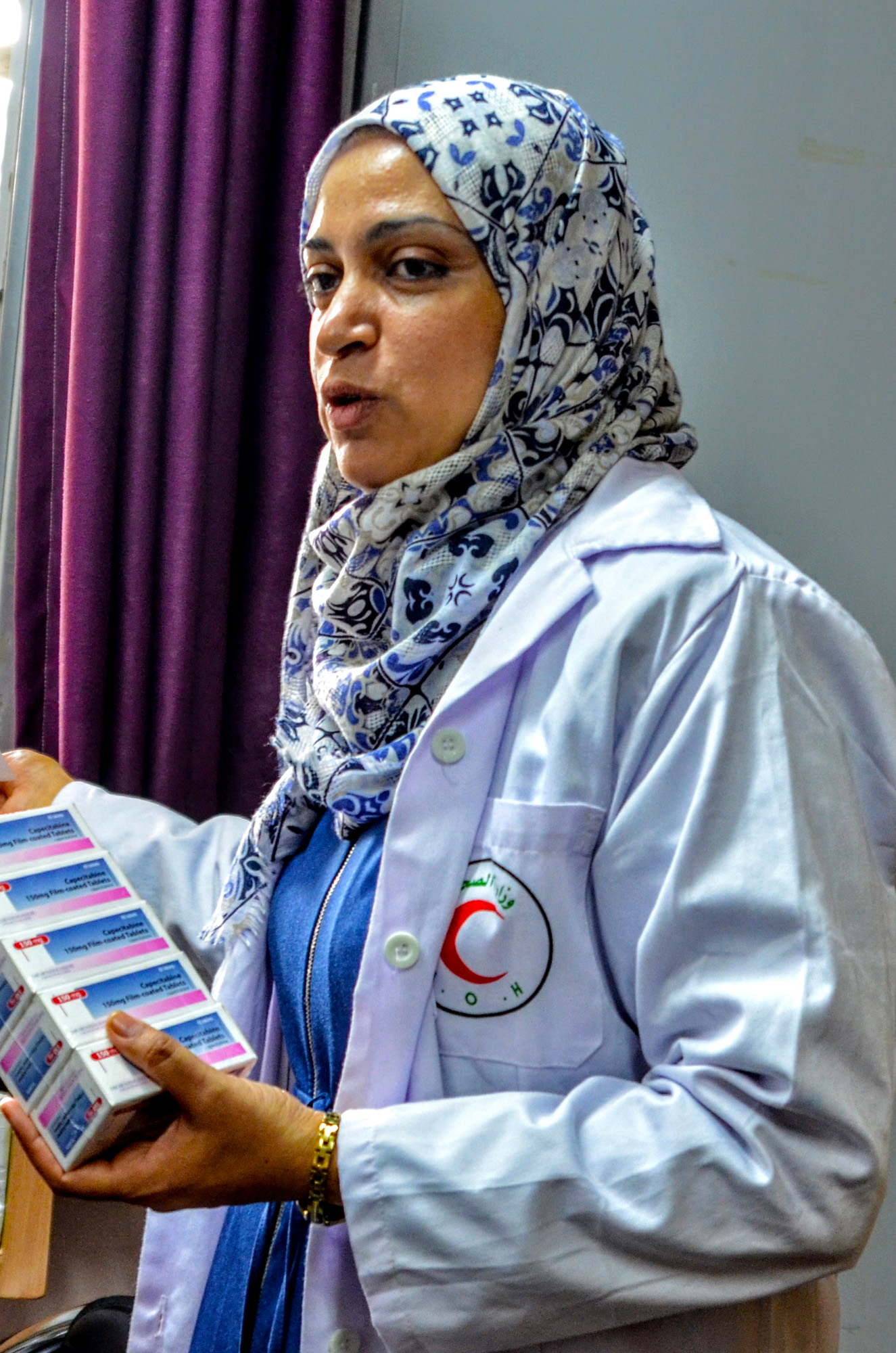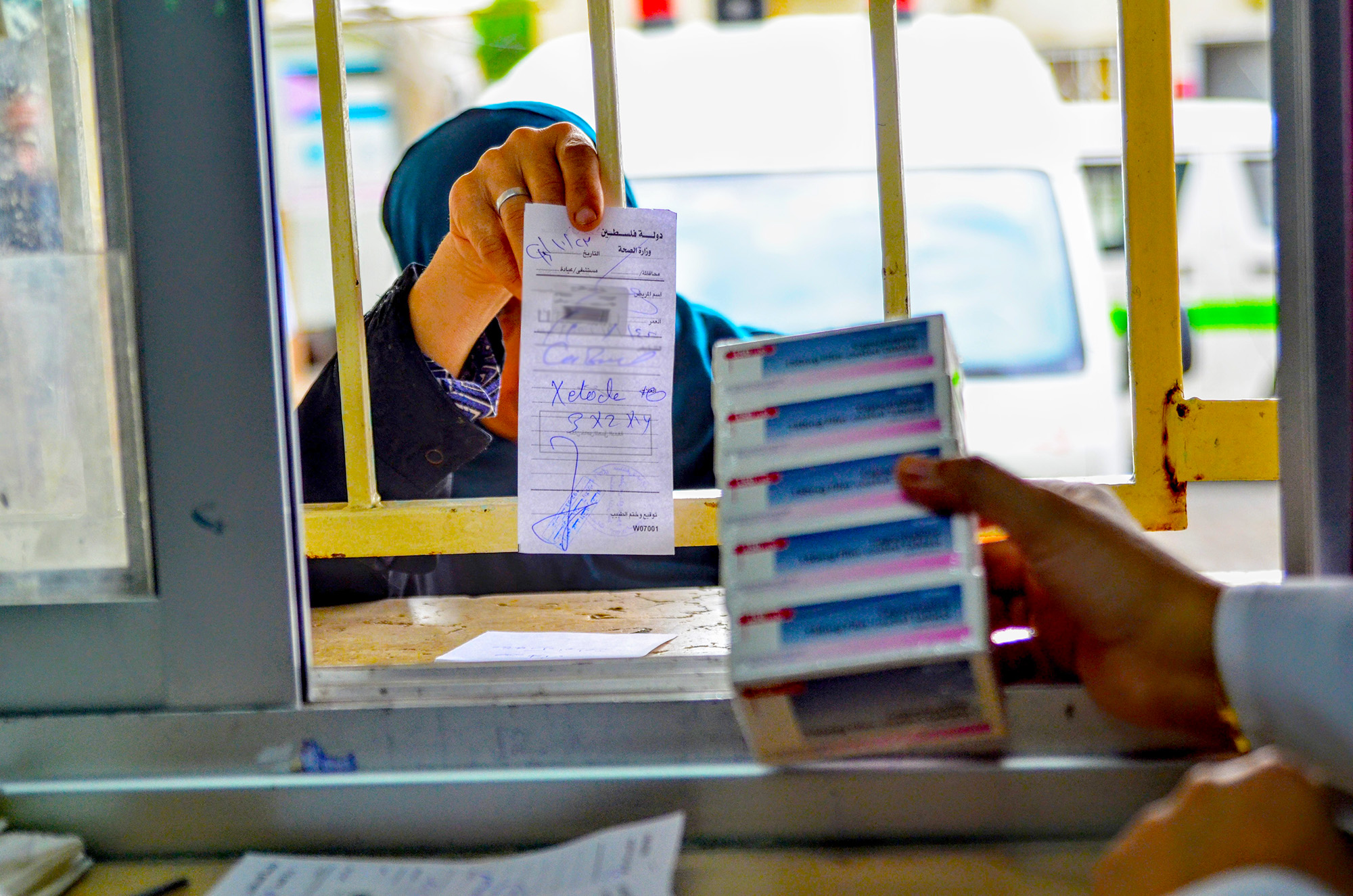Nov, 2019
“Shortages of medication are a serious danger for patients. If a protocol of treatment is disrupted, it will inevitably worsen their prognosis,” - Susan Sarhan, Outpatient Pharmacist at Al Shifa Hospital, Gaza
Shortages of Essential Medicines and Movement Restrictions Threaten Patient Health in Gaza
Cancer patients in Gaza are trapped. They must confront the emotional and physical challenges of their illnesses while also managing the stress and uncertainty of getting treatment. Health facilities in Gaza lack some essential equipment and staff to properly treat many forms of cancer. Many patients are left with only one option: to seek treatment outside Gaza. However, patients must often wait months to get exit permits, if they are granted at all.
“The permit process is so stressful and unpredictable,” says pharmacist Susan Sarhan, who served in the in-patient oncology department pharmacy at Al Shifa Hospital for 15 years before moving to the outpatient pharmacy four years ago.
“Many die before they even get a response on their referral papers for treatment,” Sarhan says.
Although radiotherapy is unavailable in Gaza, limited forms of chemotherapy are. Some 200 cancer patients pass through the Al Shifa Hospital outpatient pharmacy each day to fill their prescriptions.
“Shortages of medication are a serious danger for patients. If a protocol of treatment is disrupted, it will inevitably worsen their prognosis,” she says.
Ensuring Gaza Chemotherapy Patients Have Essential Medicines
Sarhan believes that poor diet, contaminated water, herbicide spraying and bombings from conflicts all contribute to a significant spike in Gaza’s cancer rates. “We can’t attribute it to one single cause,” Sarhan says.
Al Shifa Hospital occasionally runs out of or low on cancer medicines, so they are rationed and only given to a limited number of patients. “Our list of medicines in short supply at the pharmacy has grown dramatically, particularly in the last five years,” Sarhan says. Capecitabine, an oral chemotherapy drug, is one of the essential drugs that has been in short supply.
Now, thanks to International Health Partners, which donated this shipment of medicines, and Islamic Relief USA, which covered the shipping costs, Anera delivered capecitabine to Al Shifa, making a full six month course of the drug available to patients in Gaza free of charge.
Noura is at the pharmacy to pick up medication for her husband, who is undergoing treatment and is currently confined to bed rest. Doctors diagnosed Noura’s husband with the disease in late June and they decided not to try to obtain permission for him to seek treatment outside of Gaza. She is thankful that she has been able to get the chemotherapy medicine he needs at the hospital.
“Although the medicine makes him vomit constantly, it’s much better than waiting for a permit for treatment outside Gaza,” Noura says.
Aysha, a 42-year-old mother of five, is also visiting the pharmacy today. Eight years ago she felt an unusual lump on her breast. She went to the hospital promptly and was diagnosed with breast cancer. Last year, it spread to her spinal cord.
She was able to go to Egypt and Jerusalem twice for chemotherapy, and has continued her treatment in Gaza. In addition to taking capecitabine, she is trying to lead a healthy lifestyle by eating fresh produce and staying active.
“Despite all of the difficulties facing cancer patients here, 150 people are now able to get their full six-month course of medicine, and that’s a huge relief for all of us — for the doctors, for the patients, and for their families,”
- Sarhan, Outpatient Pharmacist at Al Shifa Hospital in Gaza
The views expressed herein are those of Anera and shall not, in any way whatsoever, be construed to reflect the official opinion of IRUSA, its Islamic Relief affiliates, or its donors.




